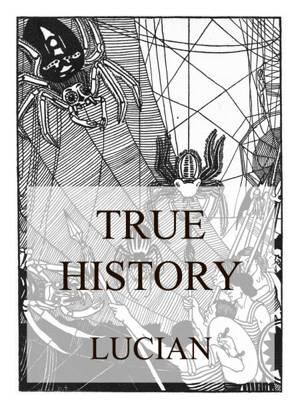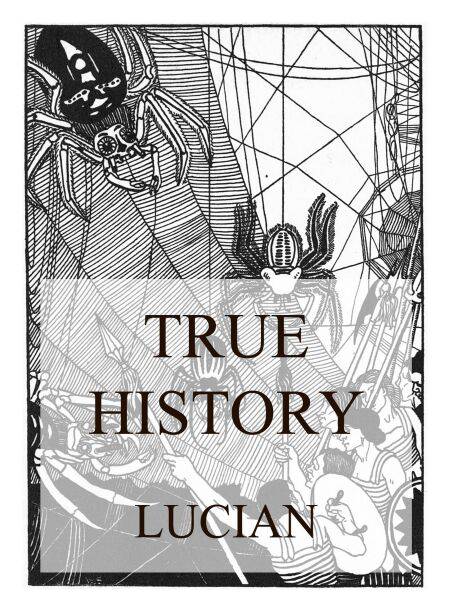
- Retrait en 2 heures
- Assortiment impressionnant
- Paiement sécurisé
- Toujours un magasin près de chez vous
- Retrait gratuit dans votre magasin Club
- 7.000.0000 titres dans notre catalogue
- Payer en toute sécurité
- Toujours un magasin près de chez vous
Description
One of the best written and most amusing treatises of antiquity is Lucian's True History, forming a rather long narrative in two books, which suggested Swift's Gulliver's Travels, Rabelais's Voyage of Pantagruel and Cyrano de Bergerac's Journey to the Moon. It is composed, the author tells us in a brief introduction, not only as a pastime and a diversion from severer studies, but avowedly as a satire on the poets and logographers who had written so many marvellous tales. He names Ctesias and Homer; but Hellanicus and Herodotus appear to have been in his mind. The only true statement in his History, he wittily says, is that it contains nothing but lies from beginning to end. The main purport of the story is to describe a voyage to the moon. He set out, he tells us, with fifty companions, in a well-provisioned ship, from the "Pillars of Hercules," intending to explore the western ocean. After eighty days' rough sailing they came to an island on which they found a Greek inscription, "This was the limit of the expedition of Heracles and Dionysus"; and the visit of the wine-god seemed attested by some miraculous vines which they found there. After leaving the island they were suddenly carried up, ship and all, by a whirlwind into the air, and on the eighth day came in sight of a great round island shining with a bright light, and lying a little above the moon. In a short time they are arrested by a troop of gigantic "horse-vultures" and brought as captives to the "man in the moon," who proves to be Endymion. He is engaged in a war with the inhabitants of the sun, which is ruled by King Phaëthon, the quarrel having arisen from an attempt to colonize the planet Venus (Lucifer). The voyagers are enlisted as "Moonites," and a long description follows of the monsters and flying dragons engaged in the contest. A fight ensues, in which the slaughter is so great that the very clouds are tinged with red (p. 84). The long description of the inhabitants of the moon is extremely droll and original. After descending safely into the sea, the ship is swallowed by a huge "sea serpent" more than 100 miles long. The adventures during the long confinement in the creature's belly are most amusing; but at last they sail out through the chinks between the monster's teeth, and soon find themselves at the "Fortunate Islands." Here they meet with the spirits of heroes and philosophers of antiquity, on whom the author expatiates at some length. The tale comes to an abrupt end with an allusion to Herodotus in the promise that he "will tell the rest in his next books."
Spécifications
Parties prenantes
- Auteur(s) :
- Traducteur(s):
- Editeur:
Contenu
- Nombre de pages :
- 112
- Langue:
- Anglais
Caractéristiques
- EAN:
- 9783988680006
- Date de parution :
- 08-11-23
- Format:
- Ebook
- Protection digitale:
- Digital watermarking
- Format numérique:
- ePub

Seulement chez Librairie Club
+ 2 points sur votre carte client de Librairie Club
Les avis
Nous publions uniquement les avis qui respectent les conditions requises. Consultez nos conditions pour les avis.





